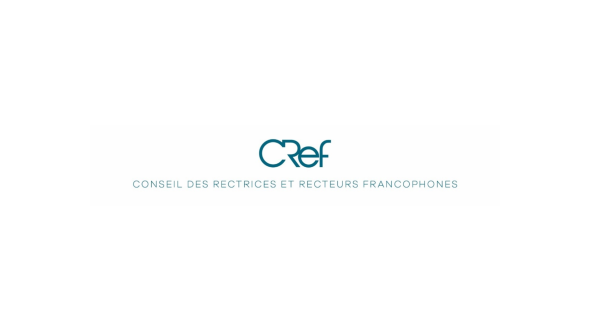Carte blanche from the Rectors' Council of May 14, 2025
For a European Union guided by its values - in word and deed

For a European Union guided by its values - in word and deed

The CReF, in association with the VLiR is publishing a carte blanche on May 14, 2025.
On May 20, the European Union's Foreign Affairs Council will meet to examine whether Israel is still complying with the conditions laid down in Article 2 of its Association Agreement with the European Union. This article is not a technical clause, but a fundamental principle: respect for human rights and democratic principles is the very foundation of all cooperation with third countries. When this foundation is structurally violated, there must be consequences. Otherwise, our European treaties risk being emptied of meaning and reduced to empty words.
For several months now, Israel has been conducting a devastating military offensive in Gaza. The images and figures speak for themselves: tens of thousands of civilian casualties, systematic destruction of civilian infrastructure, blockades on humanitarian aid, and an ever-worsening famine. In the occupied West Bank, repression continues unabated, with house demolitions, arbitrary arrests, violent attacks by settlers and the continued expansion of illegal settlements. These violations have been widely and unequivocally documented in several reports by the United Nations and human rights organizations. The International Court of Justice has itself ruled that Israel must take all necessary measures to protect the Palestinians of the Gaza Strip from the risk of genocide, including ensuring their access to basic services and humanitarian aid.
Despite this overwhelming accumulation of evidence, Europe remains silent. Over twenty years ago, Article 2 of the Association Agreement was introduced to place human rights, democracy and the rule of law at the heart of the Union's foreign policy. But these values will only retain their credibility if they are accompanied by concrete demands on our partners. It cannot be acceptable for these fundamental principles to become optional as soon as the partner in question is deemed strategic or politically sensitive.
This inconvenient truth undermines our international credibility. And yet, the President of the European Commission, Ursula von der Leyen, has made the defense of human rights a political priority, asserting that it should, along with security, form the linchpin of the Union's foreign policy. This ambition is difficult to reconcile with the current silence.
Our Belgian universities are increasingly confronted with this contradiction. Europe recognizes Israel as a full partner under the bilateral Association Agreement. Among other things, this means that Israeli academic institutions - including those directly affiliated to the Israeli state apparatus - can participate in the European Horizon Europe framework program for research and innovation. Yet, according to Article 14 of the model association agreement, participating organizations are expected to act in accordance with the "highest ethical standards" and the fundamental values of the European Union: respect for human dignity, freedom, democracy, equality, the rule of law and human rights. In theory, these requirements are clear. But in practice, they are less so.
Faced with the atrocities committed in the occupied Palestinian territories, Belgian universities have repeatedly called on the European Commission to set up a transparent and effective ethical control framework. Such a framework would make it possible to assess both whether the content of research projects carries a risk in terms of human rights violations, and whether project partners (current or prospective) are contributing to such violations. To date, however, the Commission's response has been limited to a minimalist interpretation of the aforementioned Article 14: any structurally unethical behavior on the part of a partner institution is not taken into account; only risks linked to the content of the project itself are assessed.
Belgian universities have invested considerably in rigorous ethical screening processes, but lack the levers to translate their findings into concrete action. Unilateral withdrawal of consortia or exclusion of Israeli partners from already approved projects entails legal uncertainty, exposure to potential claims for compensation, as well as the risk of reputational damage. In the absence of a clear European framework, it is almost impossible to legally justify morally responsible choices.
Faced with a situation that continues to worsen, we call on the European Commission to take a step forward and suspend the Association Agreement with Israel. There is nothing excessive about this measure - it is the logical consequence of the commitments the Union has set itself. Article 2 of the agreement clearly states that cooperation is essentially based on respect for human rights. When this condition is systematically flouted by the partner, as is the case today, there can be no question of the status quo. Suspension of the agreement is then both a political imperative and a fully justified legal decision.
We call on the Belgian government to plead explicitly, at the next Council, in favor of suspension of the Association Agreement. We also call on Belgium to press the European Commission to put in place a transparent, structural and independent human rights assessment framework that can be applied to all international partnerships in Horizon Europe and other European programs. Belgian universities are ready to share their expertise and contribute constructively to the development of solutions. But implementing such a framework requires strong political will and assertive choices.
The European Union will only be able to preserve its moral authority if it agrees to take its own values seriously - even when this is uncomfortable. Holding Israel responsible for persistent human rights violations is not an ideological position, but a moral and legal requirement.
May 14, 2025
Annick Castiaux (UNamur), Jan Danckaert (VUB), Philippe Dubois (UMons), Herwig Leirs (UAntwerpen), Anne-Sophie Nyssen (ULiège), Annemie Schaus (ULB), Luc Sels (KU Leuven), Françoise Smets (UCLouvain), Rik Van de Walle (UGent), Bernard Vanheusden (UHasselt).